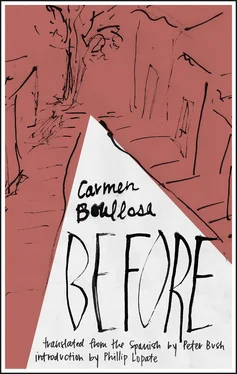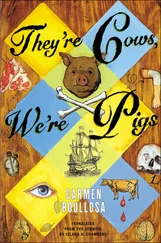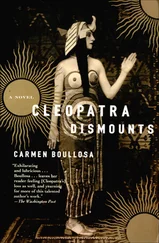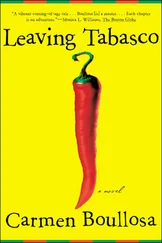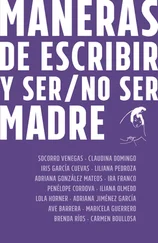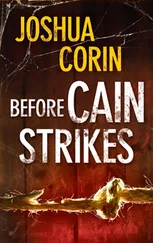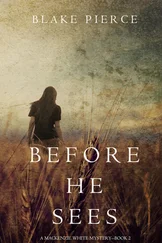Carmen Boullosa - Before
Здесь есть возможность читать онлайн «Carmen Boullosa - Before» весь текст электронной книги совершенно бесплатно (целиком полную версию без сокращений). В некоторых случаях можно слушать аудио, скачать через торрент в формате fb2 и присутствует краткое содержание. Год выпуска: 2016, Издательство: Deep Vellum Publishing, Жанр: Старинная литература, на английском языке. Описание произведения, (предисловие) а так же отзывы посетителей доступны на портале библиотеки ЛибКат.
- Название:Before
- Автор:
- Издательство:Deep Vellum Publishing
- Жанр:
- Год:2016
- ISBN:нет данных
- Рейтинг книги:4 / 5. Голосов: 1
-
Избранное:Добавить в избранное
- Отзывы:
-
Ваша оценка:
- 80
- 1
- 2
- 3
- 4
- 5
Before: краткое содержание, описание и аннотация
Предлагаем к чтению аннотацию, описание, краткое содержание или предисловие (зависит от того, что написал сам автор книги «Before»). Если вы не нашли необходимую информацию о книге — напишите в комментариях, мы постараемся отыскать её.
Part bildungsroman, part ghost story, part revenge novel,
tells the story of a woman who returns to the landscape of her childhood to overcome the fear that held her captive as a girl. This powerful exploration of the path to womanhood and lost innocence won Mexico's two most prestigious literary prizes.
Carmen Boullosa
Texas: The Great Theft
Before — читать онлайн бесплатно полную книгу (весь текст) целиком
Ниже представлен текст книги, разбитый по страницам. Система сохранения места последней прочитанной страницы, позволяет с удобством читать онлайн бесплатно книгу «Before», без необходимости каждый раз заново искать на чём Вы остановились. Поставьте закладку, и сможете в любой момент перейти на страницу, на которой закончили чтение.
Интервал:
Закладка:
Fine then, but am I afraid of fantasizing? Instead of remembering, I could fantasize, imagine memories, falsify images and events. I haven’t done so — everything I’ve told you was real, I haven’t invented a single word; I’ve written my descriptions trying as much as possible sticking to the facts. Of course, I could have used more appropriate wording than those in the narrative I’ve been spinning (I did try to correct some, others I left because I couldn’t find any better ones for my story), but I’ve kept to the truth, everything told here happened in my school, at home, in the city I inhabited and which may still exist, I don’t know, maybe the city has changed appearance, has abandoned its young, clean, and biblically virginal face.
But there’d be no point in imagining. Either I overcome the fear I feel (and enjoy the pleasure) remembering and shaping the words that describe my memories, or I keep quiet. What’s the point of fantasies, imaginings, lies…I can’t see the point, it wouldn’t give me any pleasure, and what if I were also frightened by what my imagination produced, if I had an imagination? If I had one, because there’s nothing left in me. I am only an ounce of flesh that memories keep from rotting, from being consumed by maggots and flies, from final extinction.
10
When describing the world of my dreams to you a short while ago, I said the savage disorder the world of my dreams inhabited . Why use the word savage ? I might have said battered, violent , or sad but the definition of the disordered world of my dreams would have been vague, and the word savage in the two meanings I encountered as a girl seemed a perfect fit: savages were the inhabitants of distant lands who behaved so much differently than ourselves (like my dreams, populated by hunting parties, burials, naked people running through jungle or desert, houses that had nothing in common with ours, inhuman rites), and savage meant also violent, destructive, capable of putting an end to everything.
Of course not all my dreams were the same. Their savage disorder might stem from a variety of actions, from diverse situations. For example:
I was walking alone across a huge park, down wide dirt paths. Despite the trees, I could see the brilliant bright blue sky, an explosion of light. Nobody seemed worried by the vulnerability of a girl in a white dress walking alone. I wasn’t either. Confronted by a tray of cakes offered by a gentleman in a hat, I took a copper coin from my dress pocket and bought a sweet. As my mouth closed around the cake and I licked the first ball of fried dough, caramel-coated and hollow, night fell suddenly and with a vengeance; though it was illumined by high lamps like small suns switched on by an invisible hand, an all-embracing darkness threatened. The sweet was very hard, I couldn’t break a chunk off, taking a bite only hurt my teeth, but I kept biting deep. I walked on and came upon a fountain, its vertical jet of rebellious water surging white and high into the air from round volcanic stone. Rain started to pour down. The jet continued its usual trajectory, as the rainwater scattered, gray, turbid puddles darkening the park. The rain disintegrated the cake I was trying to hold onto, dissolved it first into a rubbery mass and then took it from me and handed it over to the earth. The man with the tray ran by: it no longer carried tidbits, but Nails : that girl (or boy) I’d painted with a wound and given Esther as a present.
Where the uneven earth had formed potholes, where if I’d put my feet in any one I’d have soaked my shoes and socks, jets of water began to rise up identical to the huge fountain’s, but in proportion to the water in each pothole. The rain was such that the water from the central fountain began to spill over the ground creating more and more puddles, each of them reproducing the form and mechanics of the jet of water, tiny fountains without stone parapets. Each jet reflected the lights in the park and there were so many that the ground seemed illuminated, full of immense stars. I felt there was nowhere to step, the ground was the sky and a sun would never again lighten the gray stormy sky to guide my feet away from the depths of night.
One of the small fountains spurted and wet my skirt and panties: I felt it was deliberate and silenced it under the sole of my foot.
Then the rain abated. The fountains in the ground stopped, were once more inert puddles, and the huge fountain in the park also began to fizzle out. I walked over to the fountain: colored salamanders were running across it, uttering words I couldn’t understand, till they jumped out of the water, extending their wings, and disappeared into the dark sky which devoured them and left the park in the purest silence: now there were no passers-by, no sellers, not even the sound of water, nor leaves or rats who pattered here and there unseen. I too — I felt this distinctly — gradually disappeared, let myself be swamped by the darkness. Last to go were my eyes: I saw the park being snuffed out and — I’m not sure, but perhaps — perhaps it left the dream with me.
Why did I tell you a dream? I ought not to disrupt the flow of my narrative. I plucked the word dream out of the air because I want to tell you how it happened that from one day to the next I stopped dreaming: I never dreamed another dream again.
It wasn’t long after I lost the white healing stones from our neighbors’ window-box and after the four fat spiders ran down the jacket I’d painted them onto just because they spent a short while in an empty wardrobe, when one night, looking for a rational way out from my fear, I decided to demand white pebbles from the wardrobe. I quietly fell asleep mentally rehearsing how I would paint them so they resembled the ones I needed, recalling what they were like, trying to recall where exactly the light reflected on their tiny surface, following my painting teacher’s advice (a bald, sometimes bespectacled man, I reckoned he only wanted to ask me whether I was Esther’s daughter, his big toad eyes looked at me amazed and incredulous as I answered I was, I was, I was). The next day (there were no classes, or it was the weekend, a fiesta or the holidays, I can’t remember, the more I provoke my memory, the less I remember) I asked to be taken to Grandma’s. Once I’d arrived, I stuck by her side, started drawing, and as a result Grandma never stopped saying, “Just like your mommy,” completely ignoring me and my drawings, as she was absorbed by the work in her laboratory (which was called Laboratorios Velásquez Canseco and developed natural raw materials for use in perfumes). First I painted a lonely pebble and colored it with my white crayon, so the sheet looked practically empty. Then, I drew a small heap of white stones. I took the piece of paper to the wardrobe and waited, sitting next to it on the icy, exaggeratedly clean mosaic tiles. Sitting there I remembered when a nanny looked after me at Grandma’s, when they operated on Esther’s eyes because, someone said, she saw “with difficulty”…My uncle Gustavo whistled by, dearest Uncle Gustavo, Esther’s younger brother, and crouched next to me patting me on the head: “It’s like a coconut shell,” he said of my hair, repeating his usual joke. But I couldn’t laugh with him as usual, I felt as if I’d gotten a stomachache. The brilliantine was still damp on Gustavo’s freshly combed hair; he got up — as engrossed in his own world as I was in mine — and left without a word of goodbye, perfuming his path as he went. I heard him rush through the house and close the wooden front door. He immediately unlocked it and shouted from outside, “I’m off now, Mom,” slamming the door behind him. I then put my hand in the wardrobe and took out the white pebbles and white sheets of paper, completely unmarked. I kept them all in a bundle in the pocket of my dress.
Читать дальшеИнтервал:
Закладка:
Похожие книги на «Before»
Представляем Вашему вниманию похожие книги на «Before» списком для выбора. Мы отобрали схожую по названию и смыслу литературу в надежде предоставить читателям больше вариантов отыскать новые, интересные, ещё непрочитанные произведения.
Обсуждение, отзывы о книге «Before» и просто собственные мнения читателей. Оставьте ваши комментарии, напишите, что Вы думаете о произведении, его смысле или главных героях. Укажите что конкретно понравилось, а что нет, и почему Вы так считаете.
